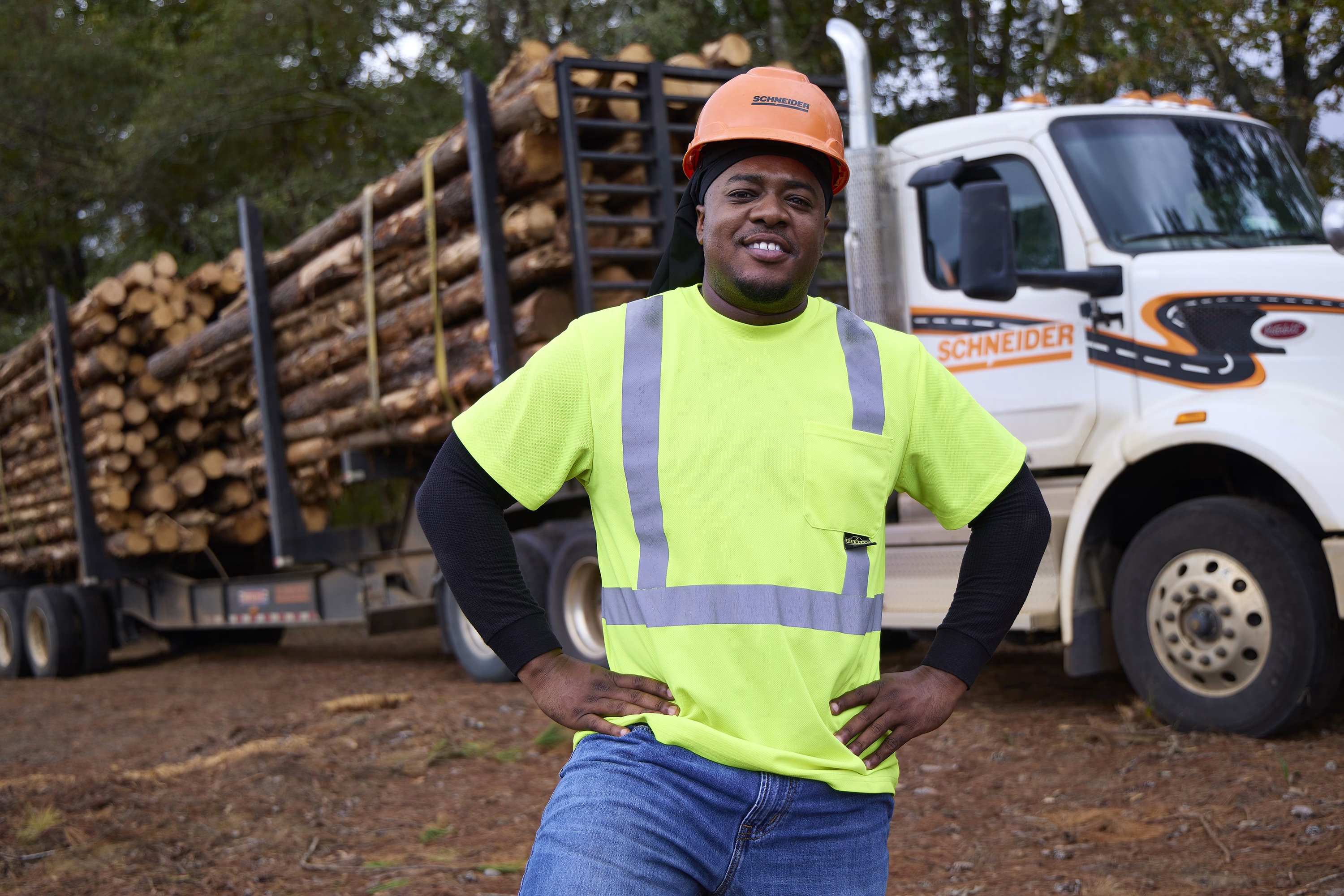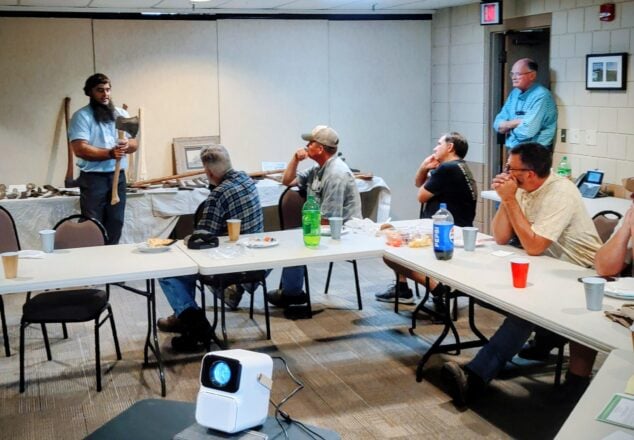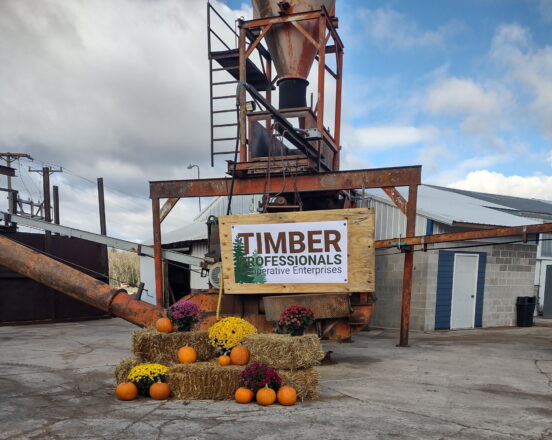Safety – An Important Element of Forestry Transportation

Transporting logs from remote forest tracts to mills involves managing complex logistics through difficult terrain. At Schneider, a trusted leader in transportation and logistics, we promote and teach safety in all aspects of our operations, ensuring our drivers transporting logs are supported with reliable systems and responsible practices.
Specialized Training for Forestry Environments
Forestry transportation presents unique challenges: rough terrain, heavy equipment, and unpredictable weather. To meet these demands, Schneider emphasizes comprehensive driver training. From the first day, drivers undergo hands-on onboarding, defensive driving courses, and continuous education to help provide them with the skills and knowledge they desire to operate safely.
Some of the safety areas that Schneider focuses on include:
Logging-specific protocols: Drivers are trained in how to work safely around heavy machinery, navigate unpaved roads, and maintain situational awareness in woodyards. Each new hire is paired with a certified trainer for on-the-job instruction at active logging sites and mill woodyards and receives training focused on securement, speed management, following distance, and maneuvering with treelength log overhangs.
Emergency preparedness: All forestry drivers are CPR and first aid certified before assignment and receive training in in-woods communication and emergency response procedures. Because forestry operations often take place in remote areas, Schneider partners with local vendors for breakdown support, all of which is coordinated through Schneider Emergency Maintenance.
Effective communication: Communication is critical in forestry operations. Our trucks are equipped with CB radios for coordination with loaders and mill personnel. New trailers feature onboard suspension scales with handheld readouts, allowing drivers to monitor load weights from a safe distance.
Vehicle operation and maintenance: Drivers receive extensive training on pre-trip and post-trip inspections, including specialized instruction on folding landing gear and the coupling/uncoupling process. All forestry drivers must pass a Qualification Road Test with a loaded trailer. Our new trailers also feature auto-tensioners on two-strap winches to secure loads and minimize the risk of log displacement.
Regulatory compliance: Schneider conducts thorough research into state-specific weight and length regulations for forest product transport. We obtain all necessary permits to ensure full compliance with environmental and road use guidelines.
A Culture of Safety
Schneider’s core value, “Safety First and Always,” drives our decisions. This culture ensures that drivers are not only trained but also supported with tools and systems to operate safely. In-cab navigation aids, regular vehicle inspections, and a strong communication network all contribute to minimizing risks on the road and in the woods.
Reliable Support in the Field
Safety doesn’t end with training. Ongoing support, real-time communication, and a proactive approach to identifying and mitigating hazards are essential. Whether it’s through FRA-sponsored safety research or legislative efforts like the Safe Routes Act, we are continuously looking for ways to improve safety.
Your Trusted Forestry Logistics Provider
Schneider delivers more than transportation—we provide a reliable, responsible, and safety-focused solution for your entire forestry supply chain. From the first mile to the last, we’re here to help you move forward with confidence.
Talk to a Schneider expert to learn how our full-service transportation solutions can bring consistency, safety, and productivity to your operations.


